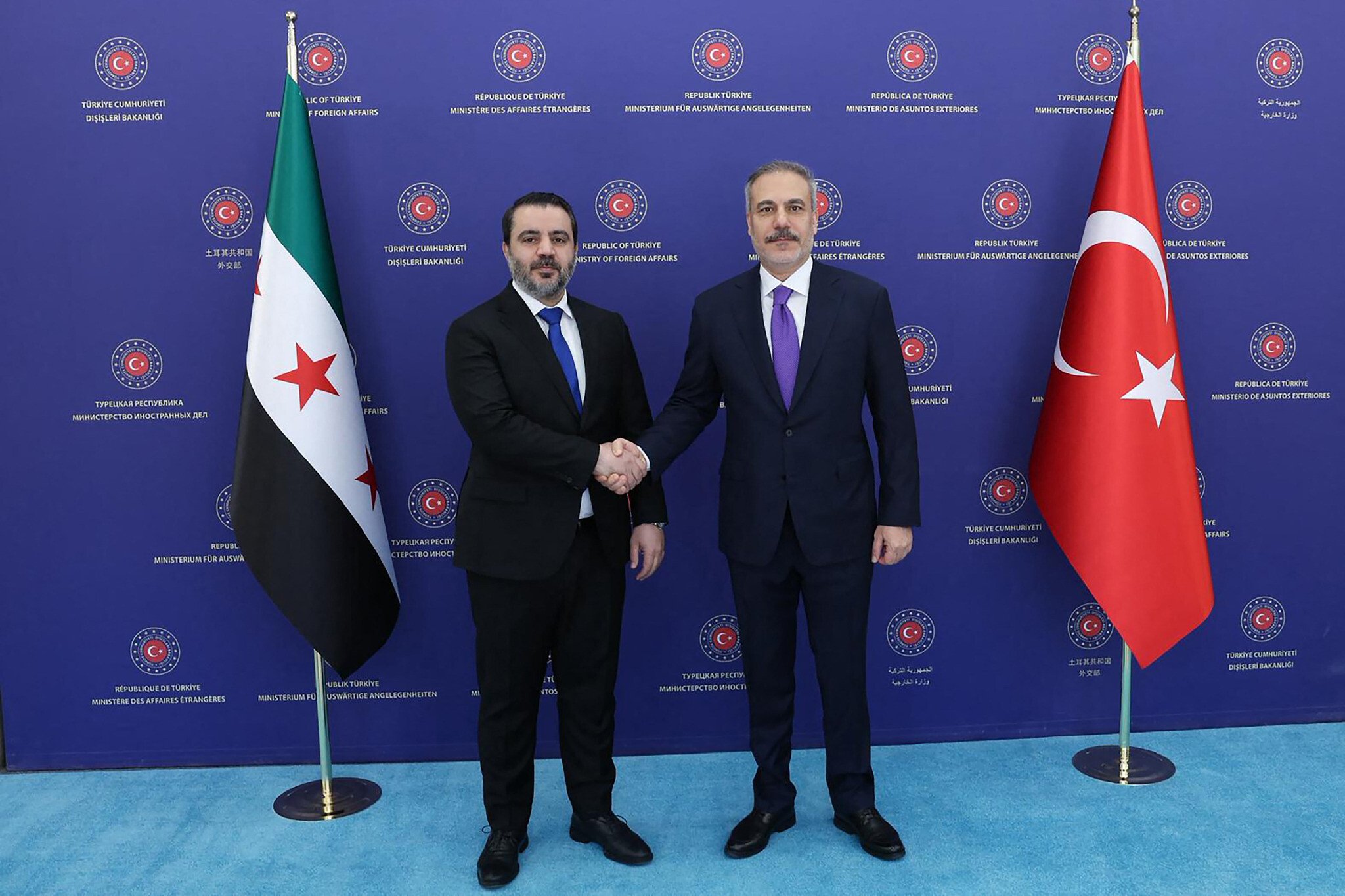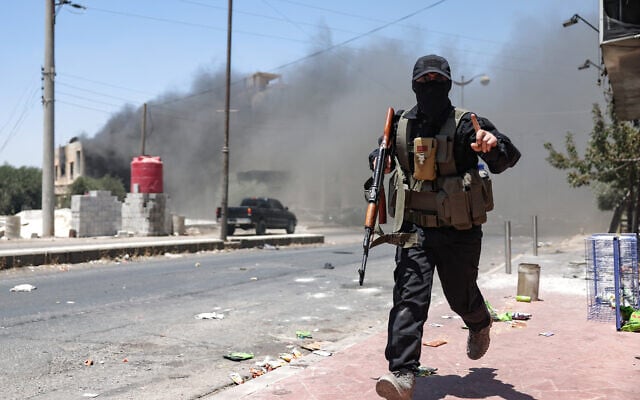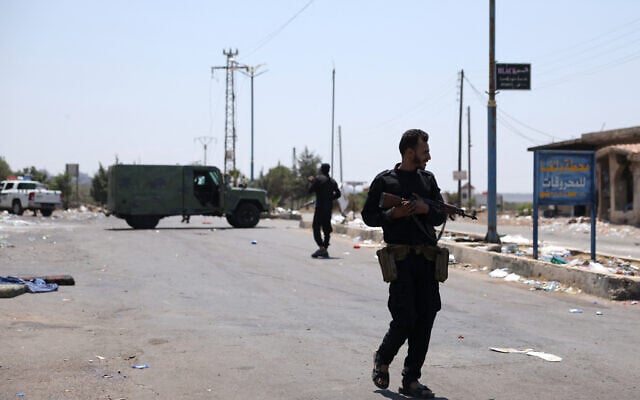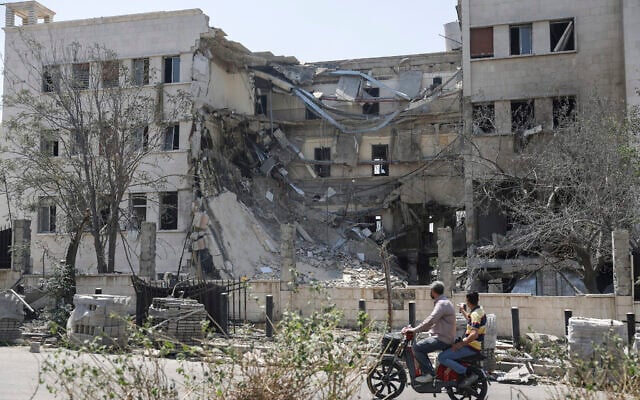



ANKARA, Turkey — Turkey’s foreign minister and his Syrian counterpart on Wednesday warned Israel not to stir up chaos in Syria and demanded an end to all external interventions they accused of being aimed at destabilizing the war-torn country.
“Certain actors are bothered by the positive developments in Syria,” Turkish Foreign Minister Hakan Fidan said after talks with Syria’s Asaad al-Shaibani in Ankara, referring to Israel and Kurdish YPG fighters operational in northeastern Syria.
“Israel is currently one of the biggest actors in this dark picture,” he said of its ongoing military incursions since the overthrow of Syrian strongman Bashar al-Assad late last year.
Since Islamist-led insurgents ousted Assad in a rebel offensive in December, the new interim government in Damascus has struggled to maintain stability and heal the wounds of the nearly 14-year civil war.
Meanwhile, Israel launched hundreds of strikes on military sites immediately following Assad’s overthrow, saying at the time it wanted to prevent weapons from falling into the hands of the new authorities it considers jihadists due to their past affiliation with al-Qaeda. It has said it wants southern Syria, which borders Israel, to be demilitarized.
“The emergence of chaos in Syria… appears to have become a priority for Israel’s own national security,” Fidan said.
Fidan said Israel had “fueled certain difficulties” in Syria and warned that Israeli security “cannot be achieved through undermining the security of your neighbors.”
“To the contrary, you should make sure your neighboring countries are prosperous and secure. If you try to destabilize these countries, if you take steps to that end, this could trigger other crises in the region.”
Standing next to him, Shaibani also warned against efforts to foster chaos in Syria.
“We’re facing new challenges that are no less dangerous than those we encountered during the years of war, foremost among them are repeated Israeli threats… through airstrikes,” he said.
Fidan alleged that efforts to destabilize Syria could be clearly seen in the March bloodshed in the coastal Alawite heartland of Latakia and in the recent deadly violence that gripped the southwestern Druze-majority province of Sweida, as well as in the Kurdish-dominated northeast.
Hundreds were killed in the Sweida clashes between government forces and local Bedouin tribesmen on one side and fighters from the Druze minority on the other. Israel vowed to protect the Druze and carried out airstrikes on government convoys in Sweida as well as the Defense Ministry headquarters in Damascus, after which the violence eventually subsided.
Jerusalem said at the time it intervened to block Syrian troops from entering southern Syria, to enforce its demands for the total demilitarization of Syria’s south, and to uphold a longstanding commitment to protect the Druze, thousands of whose coreligionists live in Israel.
“The events in Latakia and Sweida and the failure to integrate the YPG (into the Syrian state) are evidence of the challenges and obstacles facing the positive process underway,” Fidan said.
Shaibani said Israel’s actions “undermine the security of our citizens,” adding that “certain countries want Syria to disintegrate based on ideologies, based on ethnicity, and obviously we are against all these efforts.”
“We are also confronting multiple foreign interventions, both direct and indirect… [that] push the country toward sectarian and regional strife,” he said without giving details but warning against “any reckless attempts to exploit events here.”
During the war, Assad’s government was backed by Russia, Iran and the latter’s Lebanon-based proxy terror group Hezbollah.
Fidan said the YPG — part of the US-backed Kurdish-led SDF but seen by Ankara as an extension of the PKK militant group — remained a concern over its refusal to integrate into the Syrian state despite a March agreement to do so.
The PKK, which fought a decades-long insurgency against Ankara, is currently in the throes of disbanding as part of a peace agreement with the Turkish government.
“We have not seen any developments that indicate the organization has eliminated the threat of armed action,” nor sent home the foreign fighters in its ranks, he said.
“In an environment where Turkey’s security demands remain unmet, we have no chance of remaining calm,” he warned.
“Not every actor in the region is as constructive as us,” Fidan claimed. “There are certain people who have been meddling in the affairs of Syria, chief among them the Israeli administration.”
He made similar remarks last week when he visited Damascus to meet with Syrian interim President Ahmad al-Sharaa.
Syria last month requested Turkey’s support to strengthen its defense capabilities following the sectarian violence that increased tensions in the country and drew Israeli intervention.
Developments in Syria have increased tensions between Turkey and Israel, which has taken over the former no-man’s land adjacent to its border as a buffer zone.
In April, Israel struck five cities in Syria, including more than a dozen strikes near a strategic air base in the city of Hama, where Turkey reportedly has interests in having a military presence. Israel accused Turkey of trying to build a “protectorate” in Syria.
That month, Turkey and Israel held talks on creating a deconfliction mechanism in Syria that would avoid clashes between the two countries. They reportedly reached an agreement following a month of talks.



